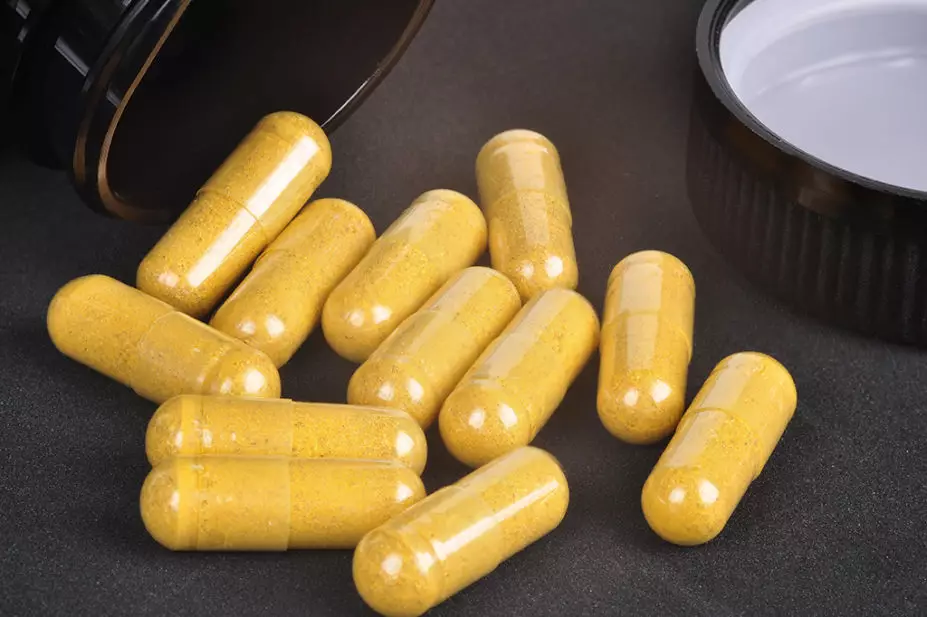
Zoonar GmbH / Alamy Stock Photo
The so-called ‘diet pill’ 2,4-Dinitrophenol (DNP) will be added to the list of regulated poisons, campaigners have said, after receiving a letter from the Home Office announcing the plans.
The letter, sent to campaigners on 9 December 2022 and seen by The Pharmaceutical Journal, said that, following a government consultation, “the Home Office intends to add DNP to the list of regulated poisons under the Poisons Act 1972 and will look to lay legislation to this effect early [in 2023]”.
The government launched a consultation in December 2021, proposing the addition of DNP to the Poisons Act 1972, but has yet to publish an update on the outcome.
The addition of DNP to the Poisons Act will mean that it can only legally be sold to a member of the public by a pharmacist, with anyone buying it required to have a valid Explosives Precursors and Poisons (EPP) licence issued by the Home Office.
“These licences can only be issued to individuals who can demonstrate a legitimate use of the substance. Any sale to a person without an EPP licence will be unlawful. While we know this won’t stop every sale, it’s crucial in tackling the sale of DNP,” the letter said.
The compound is illegal to sell as a food or medical product, but can be sold legally as a fertiliser, wood preservative dye or pesticide, and is widely available to buy online. It is also used in explosives.
However, according to the Royal Pharmaceutical Society, between 2007 and 2022, 32 people died after taking the drug in an attempt to lose weight.
The letter was sent from security minister Tom Tugendhat to Doug and Carole Shipsey, whose daughter Beth Shipsey died in 2017 after consuming DNP that had been purchased online. The family has since been campaigning for DNP to be classified as a poison.
In a statement to the media on 26 January 2023, the Shipsey family said that they and co-campaigner Andrius Gerbutavicius, whose son Vaidotas also died after consuming DNP in 2018, “have been offered a meeting this Monday 30 January at the Home Office to discuss the opportunities as to how we can continue to stop the sale of DNP, improve the government’s chances of detecting DNP at the border, and support prosecutions of sellers in the UK”.
DNP is one of several new substances to be added to the Poisons Act, which include zinc and calcium phosphide and arsenic compounds, in an effort by the Home Office to tighten controls for poisons and chemicals that can be used to make explosives.
Commenting on the changes to the Poisons Act, Tugendhat said in a statement on 23 January 2023: “Around the UK, businesses and individuals use various chemicals for a wide range of legitimate uses. However, we must also minimise the risk posed by the illicit use of bomb-making materials and poisons.
“It is our responsibility to ensure our robust controls of these substances are updated and [there are] controls in place against those who wish to abuse them. These steps will do just that.”
Claire Anderson, president of the Royal Pharmaceutical Society (RPS), said: “Including DNP in the Poisons Act is a positive move as it will restrict its availability, but what’s really needed is an outright ban to reduce the risk to the public. Australia has already classified DNP as a substance of such a danger to health as to warrant prohibition of sale and we’d like the UK to follow suit.
“We are concerned that DNP is still in circulation and want to see a firm commitment to prosecuting those who make profits from it. We also call on social media companies to remove content promoting or selling DNP to further reduce harm.”
In March 2022, the RPS called for a full ban on sales of DNP in response to the government’s consultation, saying that adding DNP to the Poisons Act “does not go far enough, and we believe that DNP should be completely banned and not supplied under any circumstances”.
The RPS had previously written to then home secretary Sajid Javid in March 2019, requesting an immediate ban on DNP.
- This article was updated on 30 January 2023 to include a comment from Claire Anderson, president of the Royal Pharmaceutical Society
You may also be interested in

What are the views of the RPS and Pharmaceutical Press on AI training using copyrighted materials?

Government should consider ways to prevent ‘inappropriate overseas prescribing’ of hormone drugs, review recommends
